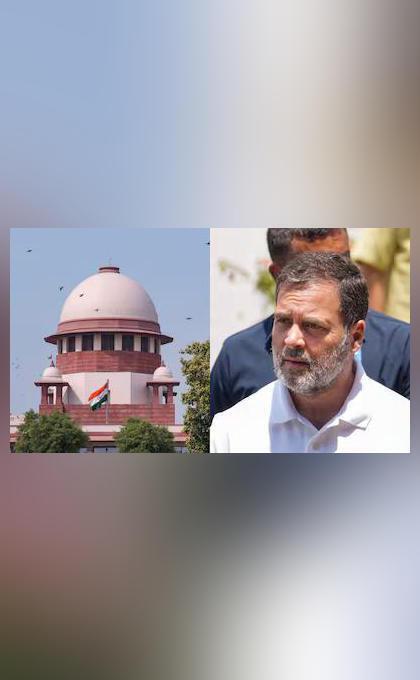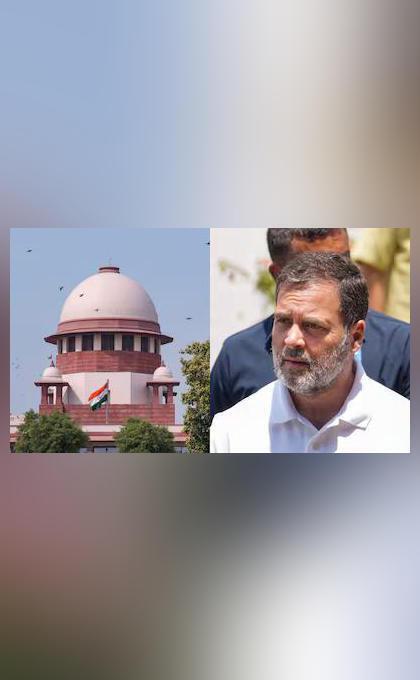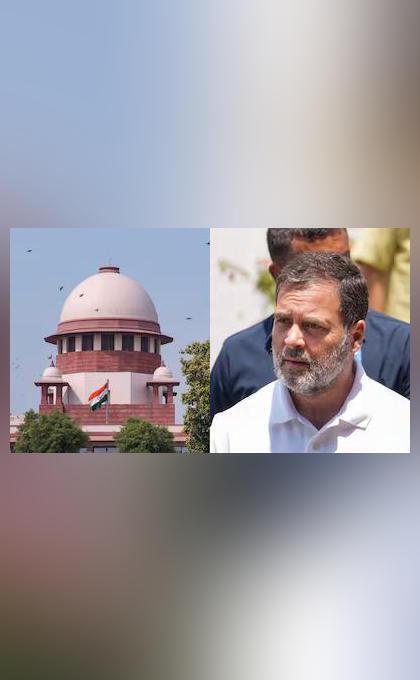
Why ask on social media & not in parliament: SC to Rahul on ‘land grab’ claim
The Supreme Court of India has recently rebuked Congress leader Rahul Gandhi over his claim that China had grabbed 2,000 square kilometers of Indian land. The court’s stern rebuke came while staying a defamation case against Rahul for his remarks about the Indian Army. The next hearing in the case is scheduled for three weeks from now.
Rahul Gandhi had made the claim in a speech in 2020, stating that China had occupied 2,000 square kilometers of Indian land. However, the Supreme Court was not impressed with Rahul’s statement, questioning the basis of his claim. “How do you know 2,000 sq km was occupied?” the court asked Rahul’s lawyers.
The court’s sharp response was a clear indication that it was not satisfied with Rahul’s claim, which was made without providing any concrete evidence. The court’s skepticism was justified, given that Rahul’s claim was made without any credible sources or data to back it up.
The Supreme Court’s rebuke of Rahul Gandhi’s claim highlights the importance of verifying information before making public statements. As a public figure, Rahul Gandhi has a responsibility to ensure that the information he shares is accurate and reliable. By making unsubstantiated claims, Rahul Gandhi not only undermines his own credibility but also risks causing confusion and misinformation among the public.
The Supreme Court’s criticism of Rahul Gandhi’s claim also raises questions about the accountability of public figures. When a public figure makes a claim, they should be prepared to provide evidence and justification for that claim. If they are unable to do so, they should be willing to retract the claim and apologize for any confusion or harm caused.
In this case, Rahul Gandhi’s claim was not only unsubstantiated but also potentially damaging to national security. By making such a claim, Rahul Gandhi was essentially questioning the integrity of the Indian government and the armed forces. This kind of reckless behavior is unacceptable and undermines the trust of the public in the political system.
The Supreme Court’s rebuke of Rahul Gandhi’s claim also highlights the importance of using credible sources and verifying information before making public statements. In today’s digital age, information can spread quickly and widely, often without being properly vetted or verified. This can lead to the spread of misinformation and confusion, which can have serious consequences.
As a public figure, Rahul Gandhi has a responsibility to ensure that the information he shares is accurate and reliable. This requires him to be diligent in his research and to verify information before making public statements. By doing so, he can help to prevent the spread of misinformation and maintain the trust of the public in the political system.
In conclusion, the Supreme Court’s rebuke of Rahul Gandhi’s claim highlights the importance of verifying information before making public statements. As a public figure, Rahul Gandhi has a responsibility to ensure that the information he shares is accurate and reliable. By making unsubstantiated claims, Rahul Gandhi not only undermines his own credibility but also risks causing confusion and misinformation among the public.





